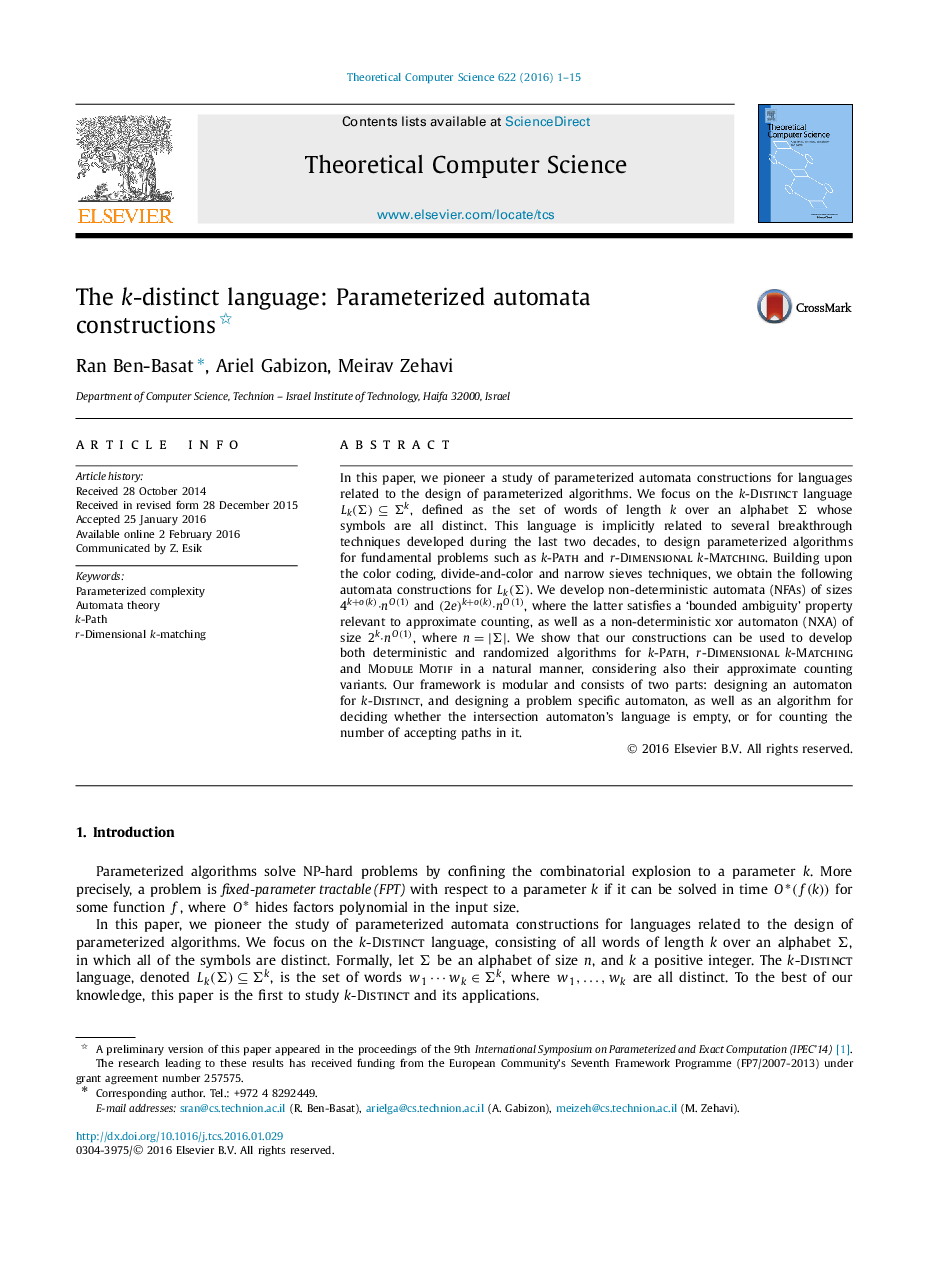| Article ID | Journal | Published Year | Pages | File Type |
|---|---|---|---|---|
| 6875951 | Theoretical Computer Science | 2016 | 15 Pages |
Abstract
In this paper, we pioneer a study of parameterized automata constructions for languages related to the design of parameterized algorithms. We focus on the k-Distinct language Lk(Σ)âΣk, defined as the set of words of length k over an alphabet Σ whose symbols are all distinct. This language is implicitly related to several breakthrough techniques developed during the last two decades, to design parameterized algorithms for fundamental problems such as k-Path and r-Dimensionalk-Matching. Building upon the color coding, divide-and-color and narrow sieves techniques, we obtain the following automata constructions for Lk(Σ). We develop non-deterministic automata (NFAs) of sizes 4k+o(k)â
nO(1) and (2e)k+o(k)â
nO(1), where the latter satisfies a 'bounded ambiguity' property relevant to approximate counting, as well as a non-deterministic xor automaton (NXA) of size 2kâ
nO(1), where n=|Σ|. We show that our constructions can be used to develop both deterministic and randomized algorithms for k-Path, r-Dimensionalk-Matching and Module Motif in a natural manner, considering also their approximate counting variants. Our framework is modular and consists of two parts: designing an automaton for k-Distinct, and designing a problem specific automaton, as well as an algorithm for deciding whether the intersection automaton's language is empty, or for counting the number of accepting paths in it.
Related Topics
Physical Sciences and Engineering
Computer Science
Computational Theory and Mathematics
Authors
Ran Ben-Basat, Ariel Gabizon, Meirav Zehavi,
